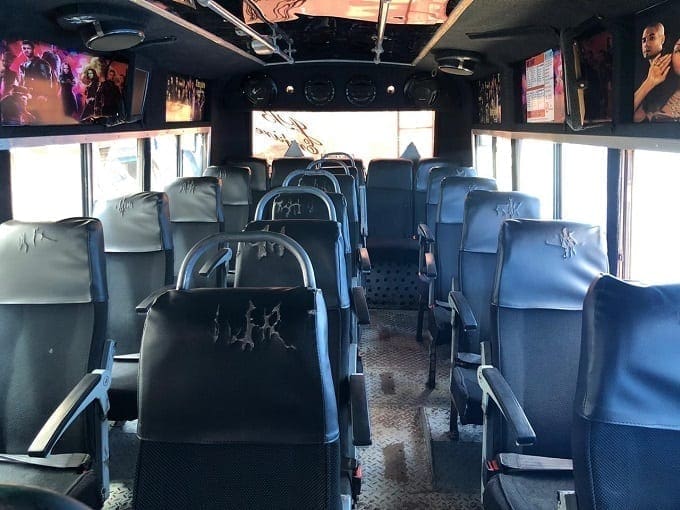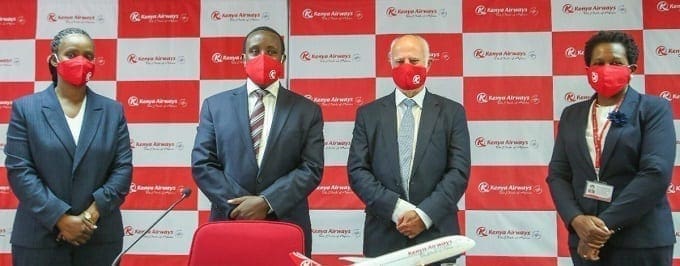Chaos in Kenyan public transportation as Kenya tries to re-open

Daily life in Kenya-Trying to re-open in the Dust. March 2020 came with a lot of changes to many people all over the world. Some of these changes proved hard to get used to. Before COVID-19, hand washing in Kenya was never a practice. Many toilets did not have soap or water to speak of. Even many restaurants had major water problems and the markets did not even imagine having customers washing their hands.
The new hygienic reality has brought chaos to public transportation, whose operations are not located anywhere near water or soap. Also, the idea of carrying fewer people never closed their minds. Therefore, the new way of doing business has not been received well by many businesses in Kenya who now have to adjust to a new way of making money. The move was finally embraced by most of the transport operators who decided to follow the regulations but increase transport cost. Most Kenyans use public transportation on a daily basis and they cannot afford to take a day off work. Working from home means computers and electric power, which is problematic in Kenya.
How have Kenyans managed to move around amidst the pandemic? The matatu operators who are organized in SACCOs now have to provide hand-sanitizers for all passengers before they enter the vehicles. These vehicles have to be cleaned twice a day, and long-distance operators are asked to keep a detailed list of all their passengers. In order to prevent contamination, 14-seater matatus carry only eight passengers, and vehicles that carry more than 30 passengers now carry not more than 60 percent of their capacity. Operators and passengers must wear facemasks throughout the journey. Failure to comply with the regulations can result in the revocation of PSV licenses for the entire SAACO. This is the threat that has made matatu operators submit. As of now, matatu operators have until the beginning of August 2020 to change the seating arrangement in each vehicle to adhere to social distancing rules required by the World Health Organization.
This new rule is part of many others. According to Dr. Francis Kuria, the officer charged with contact tracing in the health ministry, “Identifying people who have been in contact with infected people has proved difficult.” Several Kenyan ride hiring apps such as ‘Little Cabs’ have made it possible for essential services providers to get home safely past the night-time curfew by creating an additional feature that allows workers to request for a cab during the restricted hours. The same app also offers free rides to specific hospitals during the restricted hours to customers with health complications that are not COVID-19 related. However, people showing COVID-19 symptoms are encouraged to call hospitals and make personal transport arrangements. If you know Kenya, this is like dealing with robberies. Police ask that robbery victims provide transportation for them in order to arrest the robbers. There is also government COVID-19 helpline number 719 where people suspecting to have contracted the virus are asked to call. They can also text *719#. Whether Kenyans are courageous enough to use the service is another story.
The standard gauge railway ( S.G.R ) services also resumed last week operating on a 50 percent capacity. It also has an extra coach for isolation. The social distancing safety measures are the same with that of all the other transport services that are operating during the pandemic. At the same time, domestic flights resumed services with Kenya Airways announcing that no meals will be served during the flights, noting that attendants’ and passengers’ physical contact will also be limited. The planes have also been fitted with High-Efficiency Particulate Air (HEPA) filtration systems to clean the air during flights. This informs the reason why there is no social distancing observed in planes. Kenya is set to open up its airspace to the world on August 1st with the hope of boosting the international tourism sector, which has been devastated by the pandemic. However, with people all over the world living in fear, one wonders whether tourism will resume soon.
Kenya is trying to open up but as is true, Kenyans are not the most advanced in any of the processes necessary for a safe re-opening. Therefore the government is making do with what it has, and what it has is not much.
By Jasmine Wambui in Nairobi
HTBluff Associates
For Diaspora Messenger.
Chaos in Kenyan public transportation as Kenya tries to re-open









